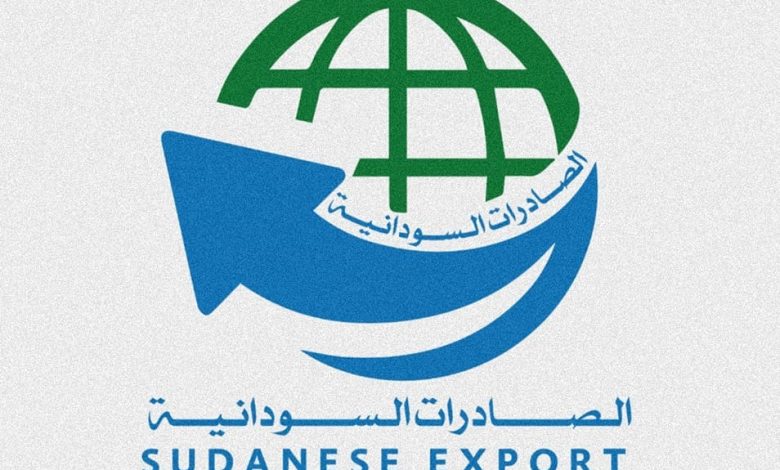Advance Payment for Export…Negatives Outweigh the Positives

Report – Rehab Abdullah
A team of banking experts criticized the Central Bank of Sudan’s adoption of the advance payment method for export proceeds once again. Observers also criticized the Central Bank’s issuance of numerous circulars and making amendments on an ongoing basis, while another team justified the move as correcting some errors to ensure the return of export proceeds, and the experts warned of the negatives. They considered the decision to outweigh its positives, and expressed their fear of the inability of Sudanese exports to compete and exit the global market
Currency market recovery
The former director of the National Export Development and Finance Agency
Ahmed Hammour, criticized the Central Bank’s direction to adopt the advance payment method for export revenues again.
Hammour warned of the recovery of the parallel currency market, and he attributed this in his speech to (Sudan Events) to the fact that one of the negatives is that the decision revives the parallel currency market inside and outside Sudan, as most exporters resort to the parallel market to purchase advance payment amounts.
He confirmed that the requirement of advance payment reduces the volume of Sudanese exports to the outside world, which is moving towards flexibility and providing facilities to importers in the world by encouraging deferred payment methods, adding that the Sudanese exporter cannot compete with the exporter of other countries who sell on credit, due to the requirement of advance payment, which reflects negatively on sudanese exports..
Failed experiments
Hammour added that studies and experiments have proven that the requirement for advance payment is one of the reasons for the spread of the phenomenon known as “paperwork,” which is devastating to the Sudanese economy.
Hammour pointed out that the Bank of Sudan adopted the same experience in 2014 when it adopted advance payment as a payment method and banned all deferred payment methods except with documentary credits. However, it backed down and allowed exports with other payment methods besides advance payment and credits, after years of failure.
Pointing out that they in the National Agency were against the decision for many reasons, including those related to the agency’s work, as the advance payment eliminates the need to secure the proceeds, which is the agency’s primary function.
Advantages of prepayment
However, Hammour pointed out that one of the successful experiences was motivating exporters by giving them a financial incentive added to the official price of the dollar. This was in 2010, and this also included the Central Bank’s experience of placing its hand in 2018 on all export earnings with the formation of a committee to consider importers’ requests through banks, and Hammour called to the possibility of combining the two experiences to obtain better results.
Central Bank Circular
The Central Bank of Sudan issued a circular in which it made an amendment to the controls for regulating exports using the advance payment method in accordance with the Money Dealing Regulation Act of 1981 and Article 20 of the 2013 Money Dealing Regulations for the purpose of regulating the proceeds of exports of other goods and exports to neighboring countries via land crossings and through the advance payment method.
The circular obtained by Al-Ahdath allowed the use of the advance payment method when exporting, provided that they commit to transferring the proceeds from abroad. Banks are not allowed to receive transfers of export proceeds from countries other than those to which they are being exported, provided that the transfer is by order of the importer abroad whose name is included in the export contract approved by the Ministry of Trade and supply, provided that the final invoice is in the name of the importer and matches the data contained in the export contract, and that the maximum time limit for carrying out export operations is three months from the date of adding the proceeds to the accounts of the relevant bank.
The circular explained that in the event that the exporter is unable to carry out export operations during the aforementioned period, the bank may take a number of measures, including considering extending the period after the customer submits a request explaining the reasons for non-implementation, provided that the extension request is only once and after the approval of the Central Bank of Sudan, and among them: The procedures allow the exporter to consider the amount paid in advance for other exports, provided that the process is carried out by the same exporter and for the same importer, and in this case it is not required that it be the same commodity.
However, the circular clarified that exports of free gold and gold from mining waste companies are treated in accordance with Policy Management Circular No. 23/2022 issued on March 17, 2023.
Policy volatility
Banking expert Waleed Dalil criticized the multiplicity of leaflets from the Bank of Sudan, indicating in his interview with (Sudan Events) that the fluctuation of the policies issued more than once a year and the large number of circulars lead to the reluctance of exporters and the finding of new ways of fraud and evasion and the loss of large amounts of foreign exchange in the country while it is in serious need for it.
Waleed Al-Dalil called for a return to the policy of the enhanced letter of guarantee from the Gulf, and attributed this to his saying that it facilitates export operations and contributes to revitalizing Sudan’s economy, especially since some Gulf banks have branches in Sudan. He wondered what benefit is expected from this Gulf bank if it does not contribute to facilitating operations. exported and imported.
Prepayment risks
Waleed Al-Dalil pointed out the danger
Obligating exporters to pay in advance in light of the existence of methods and means of payment, noting that it reduces competition for Sudanese exports, in light of the intensity of global competition and the payment facilities that are being made, and he considered it limits the ability of Sudanese goods and products to compete in the global market, and he added, addressing the Bank of Sudan’s advance payment disrupts exports, wastes opportunities for exporters, and contributes to their bankruptcy.” He expected that export operations to Egypt would be active in the coming days, so that exporters would evade the policies of the Bank of Sudan and the country would waste its scarce foreign exchange resources.
The inevitability of controls
However, the economic expert, Dr. Osman Al-Badri, stated that it is important that export revenues be returned in a guaranteed manner to the Central Bank of Sudan, adding that the exporter, importer, or grocery owner is a merchant looking for profit, so Al-Badri stressed the need for control.
So that the overall economy develops for the benefit of everyone.
However, Waleed Dalil saw that the Bank of Sudan looks more at export revenues than facilitating the export process
He considered it a big mistake, and stressed the importance of establishing the Bank of Sudan and the Ministry of Trade as a single window to facilitate procedures. In addition, there are guarantees for the transfer of export revenues through the banks that finance these operations.
At a time, Hammour said: As long as the cost of export goods in the local market is high, the problem of export proceeds will remain, indicating that the problem is not in the controls on the supply of produce, but rather in the price of purchasing these produce from exporters. Hammour believed that in the end the exporter is a merchant and will not lose in any way. He will not sacrifice his interests for any national or non-national consideration.
Risky solutions
Hammour pledged the solution to raising the price of the dollar to the exporter so that the return would be rewarding for him. However, he pointed out that this option has its well-known harms, including high prices for the Sudanese consumer, including also increasing the price of production inputs, including the production of export goods itself.
Or the second option is to control the markets for locally exported goods, such as crops, live animals, and others. He considered it a difficult and complicated option, even though it is the best option. He pointed out that there are different mechanisms to achieve this option, the most important of which is controlling bank financing.
In the context, Al-Badri said that the most important of them is not to export raw or live ones, but only those that are ready for final use. Hammour pointed out that the most prominent examples are the export of meat products, with a minimum of meat instead of live animals, the export of yarn instead of cotton, and others.



